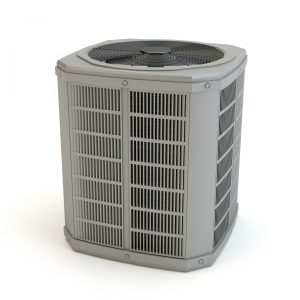Your air conditioner is your summer savior, keeping you cool and comfortable during the hottest months. But what happens when your cool oasis turns into a source of worry? A refrigerant leak can be a serious issue, impacting your comfort, wallet, and even the environment.
This blog post dives into the world of refrigerant leaks, explaining how they occur, the signs to watch out for, and when to call for AC repair in San Ramon, CA.
What Is Refrigerant and Why Does it Leak?
Refrigerant is the lifeblood of your AC system. It’s a chemical compound that absorbs heat indoors and releases it outdoors, creating the cool air you enjoy. There are various types of refrigerants used in AC units, but most commonly, they are fluorocarbons.
Refrigerant leaks can occur for several reasons:
- Wear and Tear: Over time, components like copper coils and connection points can develop weaknesses due to normal wear and tear. Vibration from the compressor can also contribute to the formation of cracks or leaks.
- Corrosion: Exposure to moisture or acidic elements can cause metal components in the refrigerant line to corrode, leading to leaks.
- Physical Damage: Accidental bumps or mishandling of the outdoor unit can cause punctures in the refrigerant lines. Rodents or other pests chewing on lines are another potential cause of physical damage.
- Improper Installation: Faulty installation practices during initial system setup can create weak connections or lead to improper tightening of components, increasing the risk of leaks.
Signs Your AC Might Have a Refrigerant Leak:
A refrigerant leak can be tricky to detect, but there are some telltale signs to watch out for:
- Reduced Cooling Performance: Is your AC struggling to keep your home cool, even when set to a low temperature? A refrigerant leak could be the culprit. A leaking system has less refrigerant available to absorb heat, leading to decreased cooling capacity.
- Higher Energy Bills: As your AC works harder to compensate for the refrigerant leak, you may notice a spike in your energy bills. The system is running for longer periods but achieving less cooling effect.
- Hissing or Bubbling Sounds: Refrigerant leaks can sometimes produce hissing or bubbling noises near the outdoor unit. This is a sign of escaping refrigerant gas.
- Frozen Coils: The refrigerant absorbs heat indoors, causing the evaporator coil to become cold. However, a refrigerant leak can lead to the evaporator coil becoming excessively cold and even frosting over.
- Presence of Ice on the Condenser Coil: The condenser coil releases heat outdoors. While some condensation is normal, the presence of ice on the condenser coil can indicate a refrigerant leak and reduced system efficiency.
- Reduced Airflow: A clogged air filter can restrict airflow, but a refrigerant leak can also impact airflow. If your vents are blowing weak or insufficient air, it’s worth investigating for a leak.
What to Do if You Suspect a Refrigerant Leak
If you suspect a refrigerant leak in your AC system, here’s what to do:
- Turn Off Your AC: The first step is to turn off your AC unit to prevent further damage.
- Contact a Qualified HVAC Technician: Don’t attempt to fix a refrigerant leak yourself. A qualified HVAC technician has the expertise and equipment to safely locate and repair the leak. They can also recharge your system with the proper amount of refrigerant.
- Ventilate the Area: If you suspect a refrigerant leak, open windows and doors to ventilate the area. Refrigerants can be harmful if inhaled in large quantities.
Schedule an appointment today with Comfy Heating & Air Conditioning Inc.

